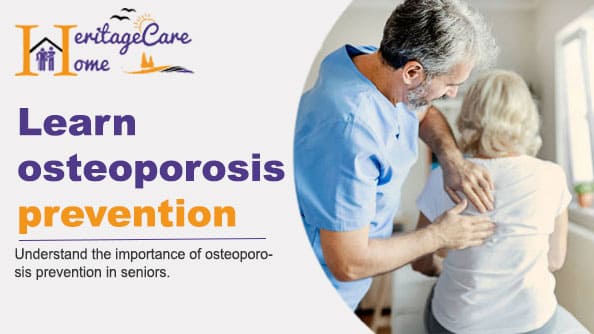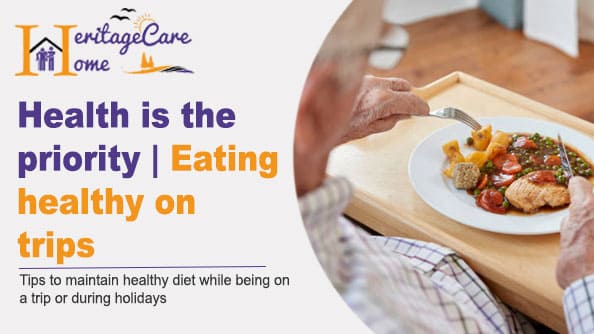Health is the priority | healthy on trips
- Admin |
- Feb 08, 2024
Tips to maintain healthy diet while being on a trip or during holidays...
Read more
For elderly folks, osteoporosis can have catastrophic effects. Among the most frequent are fractures and falls that cause bone discomfort.


For elderly folks, osteoporosis can have catastrophic effects. Among the most frequent are fractures and falls that cause bone discomfort. Each one has the potential to lower the quality of life.
Over the age of 65, osteoporosis affects 5.1% of men and 24.5% of women, according to the Centers for Disease Control and Prevention (CDC). While aging is an inherent danger, other characteristics may be more easily managed. You might be able to prevent the condition by making a few lifestyle adjustments.
Here are some important facts concerning osteoporosis.
Exercise helps preserve bone density while promoting bone regeneration. For avoiding osteoporosis, both are crucial. Even if you split up a 30-minute workout into two 15-minute sessions, exercise helps maintain strong bones. Exercises that improve bone health include cycling, walking, utilizing resistance bands, and mild exercise.
Health professionals used to think that as you age, carrying a little more weight protects you from osteoporosis. Recent research appears to refute those ideas. According to scientists, keeping a healthy body mass index (BMI) can aid in osteoporosis prevention. A low BMI is harmful to both men and women, according to research. For men, having a little increased BMI may be beneficial, but not for women.
Many individuals link smoking to lung conditions, including cancer. Smokers, however, also have a higher risk of developing osteoporosis. According to researchers, it hinders the body's capacity to absorb calcium, which causes a decline in bone density.
This is an unexpected risk factor. You run the danger of bone loss if you drink as much. Researchers hypothesize that it may be related to the fact that people who misuse alcohol frequently eat poorly. Osteoporosis is associated with poor diet.
Since, according to some studies, older people who consume a lot of protein have lower rates of osteoporosis. Seniors who experience bone fractures, however, frequently consume little protein. Make sure to discuss how much protein you should consume each day with your primary care physician.
Intake as you age since your body is less capable of digesting vitamins and minerals. It is challenging to get enough calcium and vitamin D through food alone—two nutrients crucial for strong bones. To find out whether you are deficient, your doctor may request a blood test. When necessary, a high dose of vitamin D may then be recommended.
We understand how crucial it is for residents of Heritage Care Home Senior Living Home to live their best lives at every stage of life. We provide chances for nourishing the body, mind, and soul via our program We set the bar for a healthy retirement life, from exercise programs like Tai Chi and Pilates to art courses that support greater brain health.

Tips to maintain healthy diet while being on a trip or during holidays...
Read more
The majority of Americans eagerly look forward to retirement. Many people have distinct memories of traveling, exploring the nation...
Read more
Understand how to convince your parents to accept help at their old age...
Read more
Explore the tips for managing stress at senior lving community...
Read more
Seniors are using the internet to order anything from groceries to post office stamps as long as the COVID-19 crisis concerns remain present...
Read moreFEEL THE PLEASURE OF BEING CAREFREE